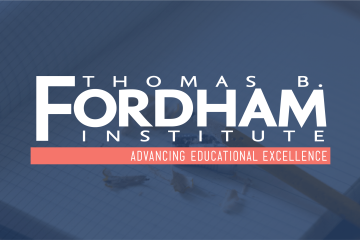The Proficiency Illusion reveals that the tests that states use to measure academic progress under the No Child Left Behind Act are creating a false impression of success, especially in reading and especially in the early grades.
The report, a collaboration of the Thomas B. Fordham Institute and the Northwest Evaluation Association, contains several major findings:
- States are aiming particularly low when it comes to their expectations for younger children, setting
elementary students up to fail as they progress through their academic careers. - The central flaw in NCLB is that it allows each state to set its own definition of what constitutes "proficiency."
- By mandating that all students reach "proficiency" by 2014, it tempts states to define proficiency downward.
- Although there has not been a "race to the bottom," with the majority of states dramatically lowering standards under pressure from NCLB, the report did find a "walk to the middle," as some states with high standards saw their expectations drop toward the middle of the pack.
- In most states, math tests are consistently more difficult to pass than reading tests.
- Eighth-grade tests are sharply harder to pass in most states than those in earlier grades (even after taking into account obvious differences in subject-matter complexity and children's academic development).
As a result, students may be performing worse in reading, and worse in elementary school, than is readily apparent by looking at passing rates on state tests.
Individual State Reports
Policy Priority:
Topics:


